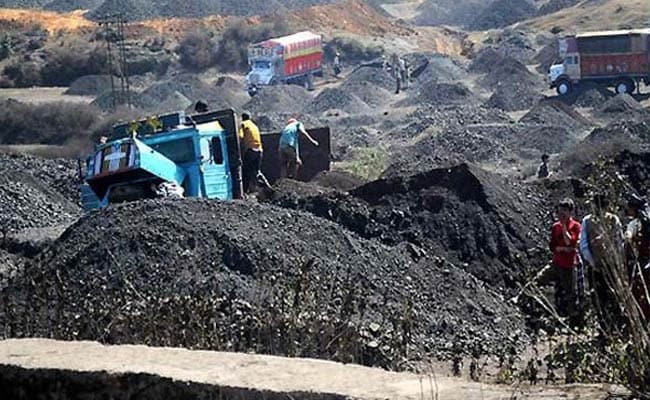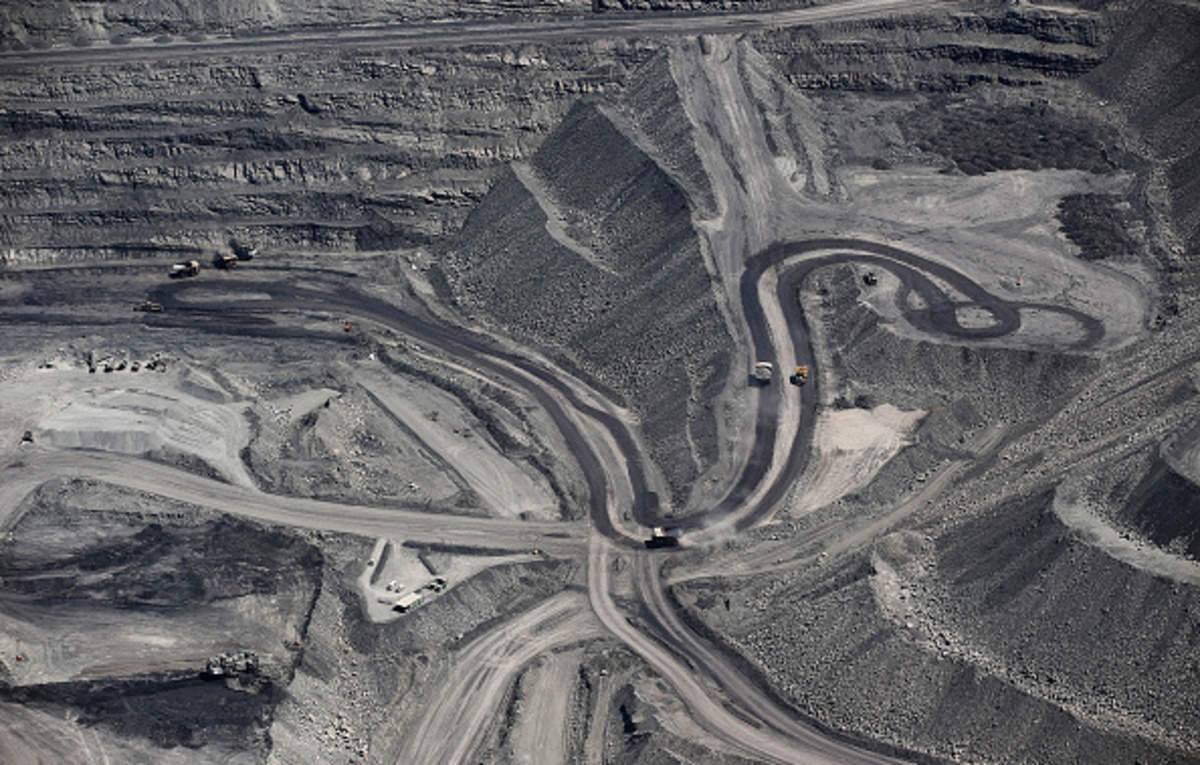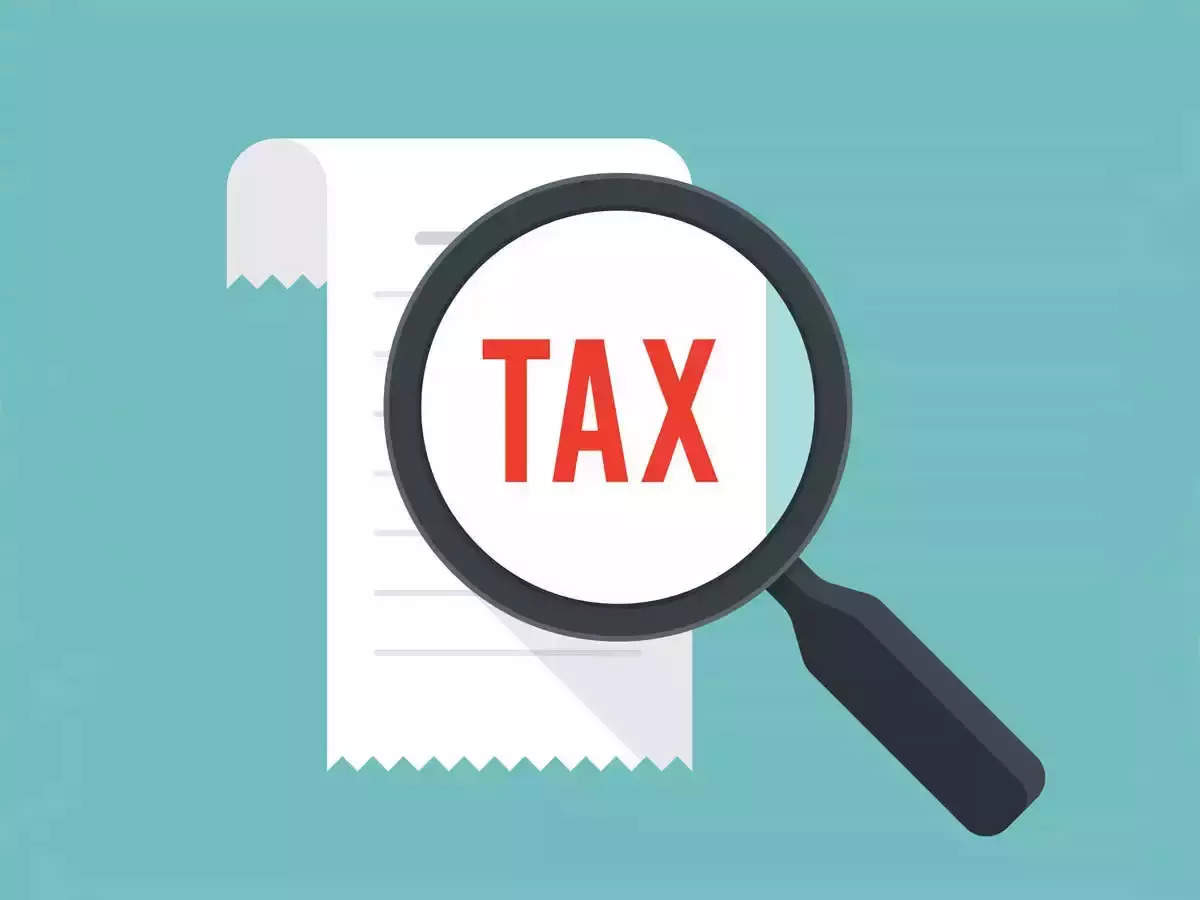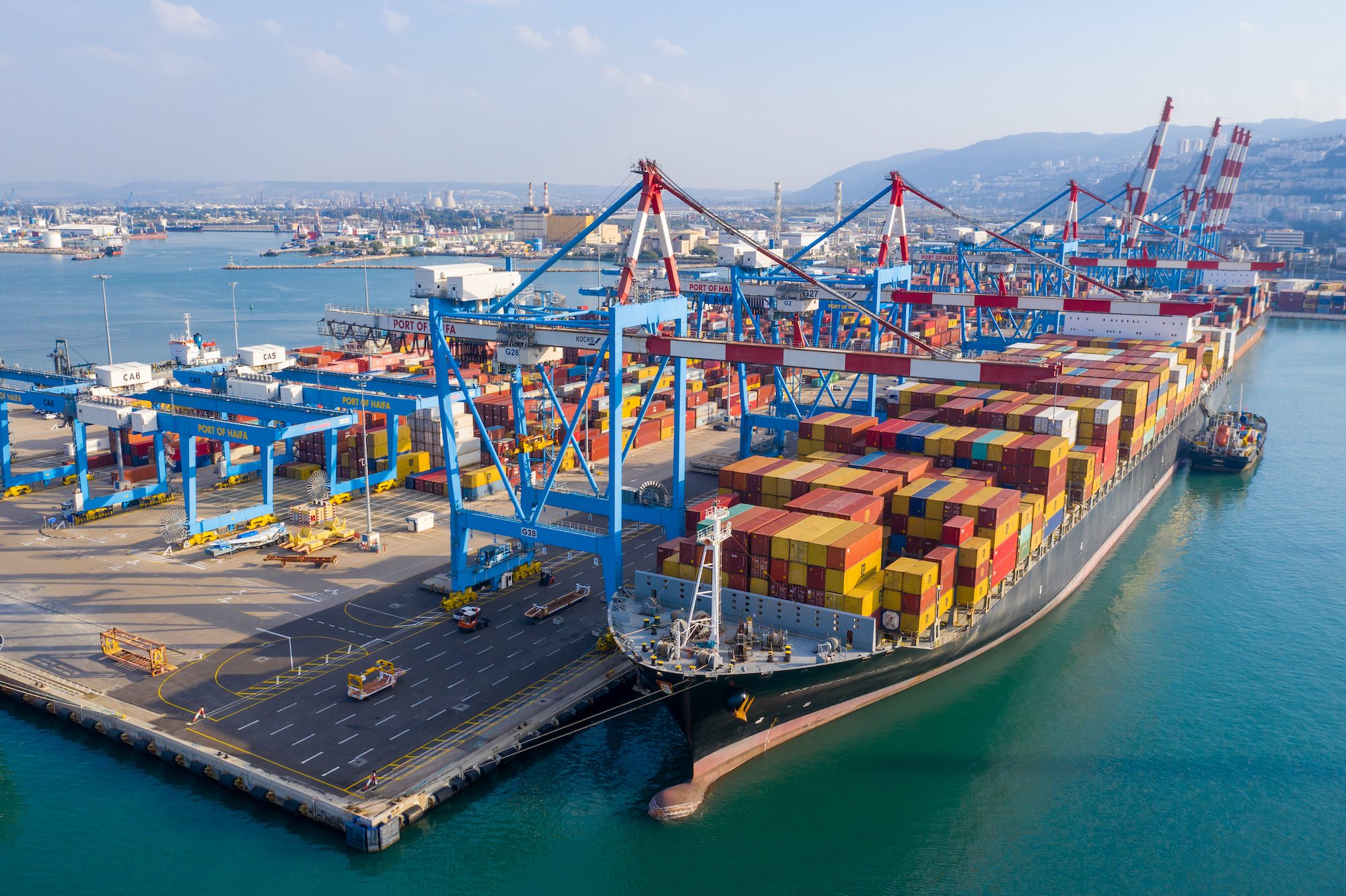FT Report Exposed Adani Fraud In Coal Scam, When Is ED & CBI Raiding Adani? Past Instances When Adani & Adani Group Companies Have Been In Controversies

FT Report Exposed Adani Fraud in Coal Scam, When Is ED & CBI Raiding Adani? Past Instances When Adani & Adani Group Companies Have Been in Controversies

In a revelation that underscores the intersection of corruption and environmental degradation, the Adani Group is accused of passing off low-quality coal as high-grade fuel in transactions with Tamil Nadu Generation and Distribution Company (Tangedco). This alleged fraudulent practice not only inflated Adani’s profits but also had significant ramifications for air quality and public health in India.
The documents, secured by the Organized Crime and Corruption Reporting Project (OCCRP) and reviewed by the Financial Times (FT), suggest that Adani engaged in systematic grade inflation of coal shipments. The evidence indicates a pattern of deception that potentially spanned numerous transactions, resulting in substantial economic gains for Adani at the expense of environmental standards.
The Deceptive Coal Transactions
In January 2014, Adani purchased an Indonesian shipment of coal, which was documented to have a calorific value of 3,500 calories per kilogram. This low-grade coal, however, was sold to Tangedco as 6,000-calorie coal, a significantly higher quality and more expensive grade. After accounting for transport costs, Adani’s profits from this transaction were more than doubled.
Further evidence points to a broader scheme involving 22 similar shipments in 2014, amounting to 1.5 million tonnes of coal. These documents reveal a consistent pattern of grade inflation, with low-calorie coal being misrepresented and sold as high-calorie coal. The financial implications of these transactions are significant, as they indicate that Adani and its intermediaries could have shared up to $46 of profit per tonne, resulting in a total of approximately $70 million for the 22 shipments.
Adani sourced this coal from PT Jhonlin, an Indonesian mining group known for its low-calorie coal. The coal was bought at prices consistent with low-grade fuel but was delivered to Tamil Nadu for power generation under contracts that specified high-quality, expensive fuel. The discrepancy in coal grades and the associated financial gains highlight the extent of the alleged fraud and the deliberate manipulation of coal quality data to maximize profits.
Environmental and Public Health Implications

India faces a severe air pollution crisis, with over 2 million deaths annually attributed to outdoor air pollution, according to a 2022 study in The Lancet. Coal-fired power plants, which supply about three-quarters of India’s electricity, are significant contributors to this pollution. A decade-old study found that these plants accounted for approximately 15% of the country’s man-made emissions of fine particulate matter, 30% of nitrogen oxide, and 50% of sulfur dioxide.
By burning more low-quality coal to meet energy demands, the environmental impact is exacerbated, leading to higher emissions and deteriorating air quality. Sunil Dahiya, an analyst at the Centre for Research on Energy and Clean Air, highlighted that public health has been compromised in favor of the power sector’s interests. The use of low-grade coal results in higher emissions of harmful pollutants, which contribute to respiratory diseases, cardiovascular problems, and other health issues.
The environmental implications extend beyond air pollution. The mining and transportation of coal also have significant ecological footprints, including deforestation, habitat destruction, and water pollution. The use of lower-quality coal increases the volume of coal required to produce the same amount of energy, further intensifying these environmental impacts.
Political and Economic Dimensions

These revelations come at a time when Adani is attempting to reposition itself as a leading player in renewable energy. The group, which denies any wrongdoing, remains one of India’s largest coal importers. The controversy adds to the political debate surrounding the influence of billionaires like Gautam Adani, especially during an election period where Prime Minister Narendra Modi seeks a third term.
The Directorate of Revenue Intelligence (DRI), India’s economic crime investigative unit, initiated a probe into coal price inflation in 2016. Despite this, tangible outcomes have been sparse. However, new documents reveal detailed transactions that illustrate the extent of the alleged fraud. The DRI’s investigation focuses on the use of offshore intermediaries to inflate coal prices, a practice that has significant implications for India’s energy sector and public finances.
The political ramifications are substantial. The power and influence of conglomerates like Adani are a central issue in India’s ongoing electoral campaigns. Opposition politicians have called for comprehensive investigations into the group’s activities, citing concerns over corruption, economic manipulation, and the potential impact on public resources. The controversy also raises questions about regulatory oversight and the effectiveness of India’s anti-corruption measures.
Unraveling the Fraudulent Transactions
In December 2013, the MV Kalliopi L ship departed Indonesia with coal priced at $28 per tonne. Upon arrival in India, this coal was sold to Tangedco at $92 per tonne. The coal’s origin was PT Jhonlin’s operations in South Kalimantan, and the listed calorific value was 3,500 calories per kilogram. However, when sold to Tangedco, the value was falsely inflated to 6,000 calories per kilogram.
The intermediary in this transaction was Supreme Union Investors, a British Virgin Islands-based entity, which bought the coal for $28 per tonne and sold it to Adani in Singapore for $34 per tonne. Adani then invoiced Tangedco at $92 per tonne, claiming the coal was of high calorific value. This intricate web of transactions and the involvement of offshore entities highlight the complexity and deliberate nature of the alleged fraud.
Documents show this was not an isolated incident. A 2014 purchase order listed 32 deliveries of high-calorie coal by Adani to Tangedco, totaling 2.1 million tonnes at $91 per tonne. Internal records from PT Jhonlin and data from Argus confirm that these cargoes were priced in line with low-grade coal. The financial gains from these transactions underscore the scale of the alleged manipulation and the significant profits generated through deceptive practices.
Denial and the Quest for Accountability
Adani has consistently denied allegations of fraud. A spokesperson stated that the coal’s quality was independently tested at multiple points, including by customs authorities and Tangedco scientists. These tests allegedly verified the quality of the coal, making the accusations “baseless and absurd.”
However, analysts like Rohit Chandra from IIT Delhi argue that the power utilities often have no choice but to accept lower-grade coal due to market power imbalances. Third-party testing has proven inadequate in addressing these concerns. The systemic issues within the coal supply chain and the potential for manipulation at various stages of the process raise significant questions about regulatory oversight and the effectiveness of current quality control measures.
The DRI’s 2016 notice highlighted a pattern of fraudulent price inflation involving offshore intermediaries. The notice listed multiple Adani companies among the entities under investigation, pointing to a systematic issue within the coal import industry. The ongoing investigation by the DRI and the involvement of various regulatory bodies underscore the need for comprehensive reform and increased transparency in the sector.
The Broader Impact on Tamil Nadu and India
The impact of this alleged scam extends beyond environmental degradation. Arappor Iyakkam, an NGO based in Tamil Nadu, filed a complaint in 2018, alleging a “coal invoicing scam.” The NGO claimed that Tangedco paid above market prices for coal and received coal of lower calorific value than specified. This discrepancy translated into higher power tariffs for consumers and significant financial losses for Tangedco.
The NGO estimated that Tangedco wasted approximately Rs60 billion ($720 million) in coal procurement between 2012 and 2016, with Adani’s share of the losses being around Rs30 billion ($360 million). The financial impact on Tangedco and its consumers highlights the broader economic implications of the alleged fraud. Higher procurement costs and inflated power tariffs burden consumers and strain public resources, exacerbating economic inequality and undermining public trust in utility providers.
The Role of Regulatory and Investigative Bodies
India’s regulatory bodies have been slow in addressing these issues. The Comptroller and Auditor General raised questions about Tangedco’s tender process, suggesting it favored large groups like Adani. The DRI’s investigation has been delayed by legal proceedings, but recent documents add pressure for accountability. The regulatory framework and the capacity of investigative bodies to address complex financial crimes and corporate fraud are crucial areas for reform.
Despite rigorous testing requirements for coal, the scope for abuse remains significant. Industry analysts note that human intervention in the testing process allows for discrepancies to be overlooked or manipulated. The need for improved oversight, stringent quality control measures, and enhanced transparency in procurement processes is evident. Strengthening regulatory frameworks and ensuring accountability at all levels of the supply chain are essential for addressing systemic issues and preventing future occurrences of similar fraud.
The allegations against Adani highlight a complex web of economic, environmental, and political issues. The fraudulent grade inflation of coal not only allowed Adani to reap substantial profits but also contributed to worsening air quality and public health in India. As investigations continue and new evidence emerges, the need for stringent regulatory oversight and accountability becomes increasingly evident. The intersection of corporate interests and public welfare remains a critical area for scrutiny and reform.
The broader implications of this case extend beyond the immediate financial gains and environmental impacts. They touch upon fundamental issues of corporate governance, regulatory efficacy, and the balance between economic development and environmental sustainability. Addressing these challenges requires a multifaceted approach involving policy reform, enhanced regulatory oversight, and a commitment to transparency and accountability in all sectors of the economy. The Adani coal scam serves as a stark reminder of the need for vigilance and integrity in corporate practices and the importance of protecting public interests and environmental health.
Past Instances When Adani & Adani Group Companies Have Been in Controversies
1. Coal Import Scam (2016)

The Directorate of Revenue Intelligence (DRI) accused Adani Group of inflating coal import prices to siphon money abroad and evade taxes. The investigation alleged that Adani and other companies over-invoiced the cost of coal imports from Indonesia to the tune of Rs 29,000 crore. The inflated invoices were purportedly used to overstate the cost of imported coal, leading to higher electricity tariffs in India and moving funds to offshore accounts. This scam is considered one of the largest and most complex involving multiple entities and international transactions.
2. Carmichael Coal Mine Controversy (Australia)

Adani’s Carmichael coal mine project in Australia has faced significant opposition from environmentalists and Indigenous groups. Critics argue that the mine will contribute to climate change, threaten the Great Barrier Reef, and violate Indigenous land rights. Despite obtaining necessary approvals, the project has been delayed by legal battles, protests, and financial challenges. Environmentalists have also criticized the project’s potential to increase carbon emissions and damage fragile ecosystems. The project has been a lightning rod for climate change activism both in Australia and globally.
3. Mundra Port Environmental Violations (2013)

The Ministry of Environment, Forest and Climate Change (MoEFCC) fined Adani Ports and SEZ Ltd (APSEZ) for environmental violations at Mundra port in Gujarat. The company was accused of damaging mangroves and constructing without proper environmental clearances. The violations included unauthorized expansion and development activities that harmed local ecosystems and affected the livelihood of local fishing communities. The MoEFCC ordered the Adani Group to restore the damaged areas and imposed a fine as part of the corrective measures.
4. AgustaWestland Chopper Scam

Reports surfaced that the Adani Group had connections with companies involved in the AgustaWestland chopper scam. The scam involved allegations that kickbacks were paid to secure a deal for VVIP helicopters for the Indian government. Although direct involvement of Adani Group was not established, the group’s association with entities implicated in the scandal raised questions about its business practices and political connections. The investigation highlighted potential conflicts of interest and the need for greater transparency in defense procurement processes.
5. Special Economic Zones (SEZ) Controversy
Adani Group faced allegations of irregularities in acquiring land for Special Economic Zones (SEZs). Farmers and activists accused the company of land grabbing and failing to provide fair compensation. There were also claims of misuse of land allotted for SEZs. The controversies often involved allegations of coercion and manipulation in land deals, inadequate compensation for displaced farmers, and the diversion of land for non-SEZ purposes. These issues have sparked protests and legal battles, reflecting broader concerns about land acquisition policies in India.
6. Tamil Nadu Wind Power Scam (2011)

The Adani Group was implicated in a scandal involving the installation of substandard wind power projects in Tamil Nadu. The company allegedly claimed higher tariffs from the government by misrepresenting the capacity and performance of wind turbines. The scam involved inflating the cost and capacity of the wind power projects to obtain favorable tariffs and subsidies from the government. Investigations revealed discrepancies between the actual performance of the wind turbines and the claims made by the Adani Group, leading to financial losses for the state utility.
7. Vizhinjam Port Project Controversy

The Vizhinjam International Seaport project in Kerala, awarded to the Adani Group, faced legal challenges and protests. Fishermen and environmental activists opposed the project, citing concerns over livelihood and environmental impact. Legal battles ensued over land acquisition and project execution. The project faced delays due to litigation over environmental clearances, compensation for affected communities, and allegations of procedural irregularities in the bidding process. The controversy highlighted the need for balancing developmental goals with environmental sustainability and community rights.
8. Tax Evasion Allegations (2014)

In 2014, the Adani Group was accused of tax evasion amounting to Rs 6,000 crore. The Income Tax Department conducted raids and investigations into allegations that the company inflated expenses to reduce taxable income. The raids uncovered documents suggesting that Adani Group had engaged in complex financial transactions to evade taxes, including the use of offshore entities and manipulated invoices. The allegations led to scrutiny of the group’s financial practices and calls for stricter enforcement of tax laws.
9. Controversial Tenders and Contracts

Adani Group has faced accusations of receiving favorable treatment in securing government contracts and tenders. Critics allege that the group’s close ties with political leaders have led to unfair advantages and lack of transparency in the bidding process. Instances of alleged favoritism include the awarding of large infrastructure projects, such as ports and power plants, without competitive bidding or proper scrutiny. These controversies have raised questions about the influence of corporate lobbying and the integrity of public procurement processes.
10. Mumbai Airport Land Deal (2019)

Adani Group’s acquisition of land for the Navi Mumbai International Airport project was mired in controversy. There were allegations of undervaluation and favoritism in the land deal, raising questions about the transparency and fairness of the transaction. The deal involved the acquisition of land from the City and Industrial Development Corporation (CIDCO) at prices allegedly lower than market value, sparking legal challenges and protests from local communities. The controversy underscored concerns about land acquisition practices and the role of public agencies in facilitating large-scale infrastructure projects.
Additional Instances:
11. Adani Power and Electricity Tariff Dispute (2019)
Adani Power was involved in a legal dispute over the tariffs for electricity supplied to the state of Gujarat. The controversy centered around claims for higher tariffs to cover the increased cost of imported coal. The Supreme Court of India intervened and directed the company to seek relief through regulatory commissions. The case highlighted issues of regulatory oversight, contract enforcement, and the impact of fluctuating international coal prices on domestic power tariffs.
12. Pratapgarh Land Acquisition Case (2020)
The Adani Group faced allegations of irregularities in land acquisition in Pratapgarh, Rajasthan, for the development of a solar power project. Local farmers and activists claimed that the land was acquired through coercion and at unfair prices. The controversy led to protests and legal challenges, reflecting broader issues of land rights and fair compensation in India’s renewable energy sector.
13. Haifa Port Deal Controversy (2020)

Adani Ports’ bid to acquire a stake in the Haifa Port in Israel sparked controversy due to concerns over national security and strategic interests. Critics argued that the involvement of a foreign entity in a key infrastructure project could have implications for Israel’s national security. The deal was scrutinized by Israeli authorities, highlighting the geopolitical dimensions of international investments in critical infrastructure.
14. Adani Wilmar Food Safety Allegations (2021)

Adani Wilmar, a joint venture between Adani Group and Wilmar International, faced allegations of food safety violations. Reports surfaced that the company’s edible oil products contained harmful substances, leading to regulatory scrutiny and consumer backlash. The controversy raised questions about quality control and regulatory compliance in the food processing industry.
15. Rajasthan Renewable Energy Land Dispute (2021)

Adani’s renewable energy projects in Rajasthan faced opposition from local communities and environmental activists. The disputes centered around the acquisition of land for solar and wind projects, with allegations of land grabbing, inadequate compensation, and environmental degradation. Legal battles and protests delayed project implementation, highlighting the challenges of balancing renewable energy expansion with social and environmental concerns.
16. Adani Enterprises and SEBI Investigation (2021)
The Securities and Exchange Board of India (SEBI) launched an investigation into Adani Enterprises over alleged violations of securities laws and corporate governance standards. The probe focused on transactions with related parties and compliance with disclosure requirements. The investigation highlighted concerns about transparency and accountability in the conglomerate’s corporate practices.
17. Greenpeace India Report on Coal Mining (2021)
Greenpeace India released a report accusing Adani Group of environmental violations and human rights abuses in its coal mining operations. The report alleged that the group’s activities in mining regions led to deforestation, displacement of indigenous communities, and pollution of water sources. Adani Group denied the allegations, but the report fueled ongoing debates about the environmental and social impact of coal mining in India.
18. Sri Lanka Port Project Controversy (2021)

Adani Group’s agreement to develop a terminal at the Colombo Port in Sri Lanka faced opposition from trade unions and political parties. Critics argued that the deal lacked transparency and favored the Indian conglomerate at the expense of local stakeholders. The controversy led to protests and calls for a review of the agreement, underscoring the sensitivity of foreign investments in strategic infrastructure projects.
19. Adani’s Alleged Involvement in Electoral Bonds Scheme (2021)
Reports emerged suggesting that Adani Group was a significant contributor to political parties through the controversial electoral bonds scheme in India. Critics argued that the scheme, which allows anonymous donations to political parties, facilitated undue influence by corporate entities. The allegations raised concerns about the transparency and accountability of political funding in India.
20. Adani Group and Offshore Entities (2022)
Investigative reports revealed that Adani Group had connections with numerous offshore entities in tax havens, raising questions about tax evasion and money laundering. The documents, part of the Pandora Papers leak, indicated that the group used complex corporate structures to move money offshore and reduce tax liabilities. The revelations prompted calls for greater scrutiny of corporate practices and international financial regulations.
These instances illustrate the complex and often contentious relationship between the Adani Group, regulatory authorities, and civil society. The company’s rapid expansion and involvement in diverse sectors have placed it under intense scrutiny, leading to a series of legal and ethical challenges.




